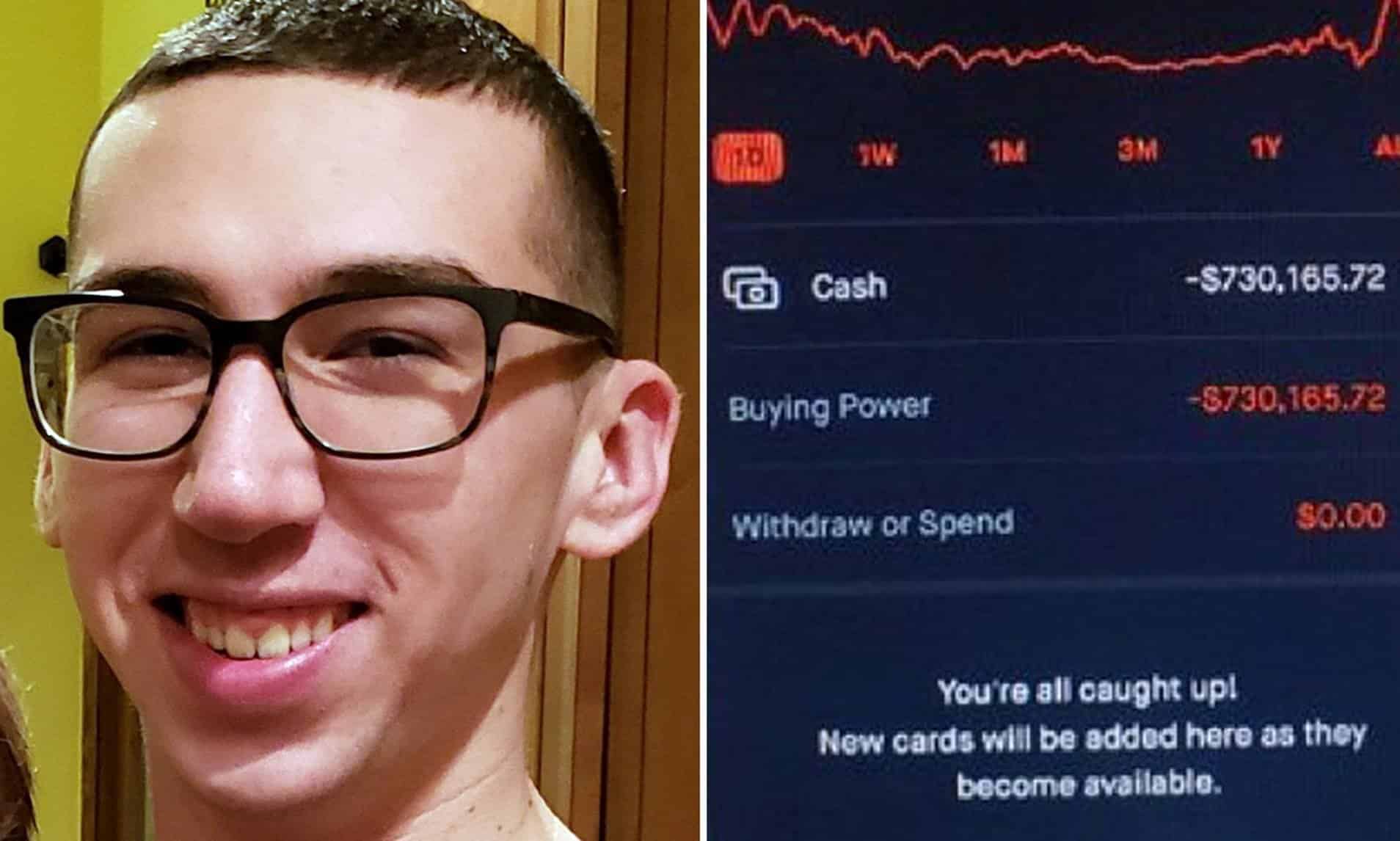2727
0
20-Year-Old Robinhood Customer Suicide After Seeing $ 730,000 Negative Balance
In a note found on his computer by his family on June 12, 2020, he said: “was a 20-year-old boy without income able to obtain leverage worth almost millions of dollars?" question

Yazar: editor_1
Yayınlanma: 20 Haziran 2020 16:29
Güncellenme: 2 Mart 2026 19:20
20-Year-Old Robinhood Customer Suicide After Seeing $ 730,000 Negative Balance
In a note found on his computer by his family on June 12, 2020, he said: “was a 20-year-old boy without income able to obtain leverage worth almost millions of dollars?" question seen. This tragic message is written by Alexander E. Kearns, a 20-year-old student at the University of Nebraska. Earlier that same day, Kearns took his own life. Like everyone else, Kearns began investing during the pandemic and signed up to Millennial-focused brokerage firm Robinhood, which offers commission-free trading, a fun, and easy-to-use mobile app, and even gives stocks to new customers for free. In the first quarter of 2020, 3 million new accounts were added to the Robinhood platform. With the outbreak stock market fluctuating, Kearns began to take a look at trading options. Kerns' furious note left to Robinhood was that he had no idea what he was doing. Silicon Valley-based Robinhood did not share the details of Kearns's account, voicing privacy concerns, and said: “AS Robinhood, we are deeply saddened to hear this terrible news and have been in touch over the weekend to offer our condolences.” It is impossible to know the causes that led to suicide, especially in young people. Still, the tragic death of Alexander Kearns is a stimulating story of the risks associated with racing down the brokerage business. Robinhood, E-Trade, TD Ameritrade, Charles Schwab, Interactive Brokers, Fidelity, and even Merrill Lynch are based on commission-free trading and zero minimum balances to attract young customers with little knowledge of the securities and markets that many of them depend on. Kearns was desperate late Thursday night after looking at the Robinhood account, which turned out to be $ 16,000 but also had a debit balance of $ 730,165. In Kearns' last note, he wrote that he never allowed margin trading and was therefore very surprised that his small account could cause such a significant loss. Although Robinhood did not disclose the details of the account, Kearns traded what is known as "Bull put spread." Put options give buyers the right to sell the stock at the price of use at any time until it expires, while sellers are in a state of the hook to buy the main stock at the price of use. If the price of the underlying stock closes a penny or more than that day's usage price, this is done automatically at the time of closing.İLGİLİ HABERLER





European stocks soared and focus shifted to German retail sales after Powell's speech!

Forex Signal For TRY/USD: Inflation Slowdown in November.

Forex Signal For GBP/USD: Bullish Trend Still Not Breaking While Recovery Continues.

Forex Signal For EUR/USD: Starry US Data Points to Higher Fed Increases.

Forex Signal For BTC/USD: Downside Continues as Bitcoin Recovery Moves Less.
En Popüler Haberler
Yorum Yap
Yorumlar
Henüz yorum yapan yok! İlk yorumu siz yapın...